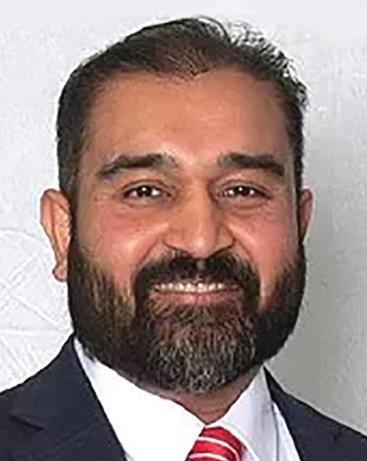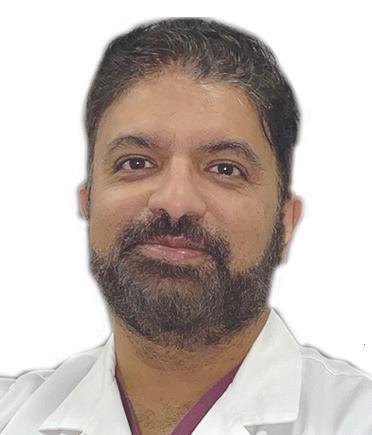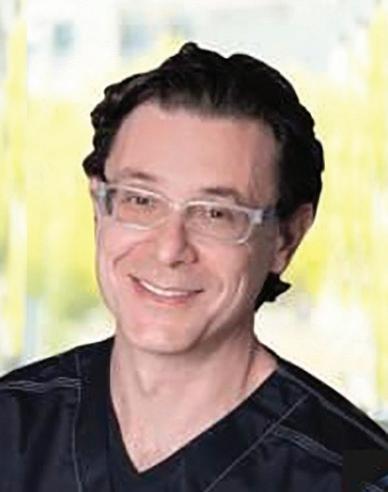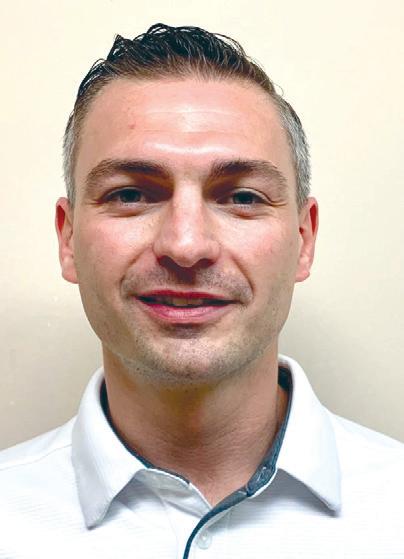MEDICALEXAMINER



Every man is born with a prostate, a small but important gland just below the bladder. As men get older, especially north of 40 years, the prostate may start to act up. In some men the prostate, if undetected during annual checks by a doctor or urologist, can lead to cancer. Data from the American Cancer Society concludes that 1 in every 8 men will be diagnosed with prostate cancer in their lifetime. However, for Black/African American men, 1 in every 6 will be diagnosed, and they are twice more likely to die from the disease. Clearly it is important to know the status of your prostate.
The Augusta Chapter of the Zero Us Too Support Group is a group of men who are recently diagnosed, impacted by, or survivors of prostate cancer. The local chapter is part of the national ZERO Prostate Cancer nonprofit whose mission is to end prostate cancer and help all those who are impacted. Its website is htps://zerocancer.org/.


The Augusta chapter meets for one hour at 6pm on the third Tuesday of each month in the Georgia Cancer Center Outpatient Services Unit, 1411 Laney Walker Blvd. in Augusta. The support group provides a place for men to gather together to share knowledge, encouragement, and emotional comfort on their prostate cancer journey. Men, their spouses, partners, or friends are always welcome.
September is National prostate cancer awareness month, and the presence of a prostate cancer support group is a unique resource for all men in the CSRA: there is no other similar group within one hundred miles of Augusta. In addition to providing camaraderie and support, men can obtain first-hand information about the different treatments (radical



August is (or was) National Breastfeeding Month. Although this issue is of ficially dated September 1, let the record show that it is still August as this article is being written. And even if it wasn’t, this is a topic that is appropriate 12 months a year.
Of course, just about everyone knows that breastfeeding is salubrious for mother and child alike. Even so, we chose the headline above because of new data released by the CDC within the past week. It turns out that most people are unaware of how tremendously beneficial breastfeeding is. And yes, we did say tremendously.

It’s a no brainer for a growing family to take advantage of a highly nutritious food source that is completely free of charge and that is on-board with mom at all times.

Beyond those important factors of cost and convenience, most people (the CDC study found) were unaware that breastfed babies have a signi ficantly lower risk of later going on to develop asthma, type 1 diabetes, and obesity. Those benefits are on top of the well-known bonuses of better health, growth, and development for breastfed babies.

In addition, very few people surveyed knew that breastfeeding protects the mother against breast cancer (fewer than 24% knew); high blood pressure (only about 15% knew), and type 2 diabetes (as with hypertention prevention, some 85% did not know).
Please see MEN page 3 +
Given that diabetes, hypertention and heart disease, cancer, and obesity are all leading causes of illness and death among US women, researchers hope that greater awareness of the benefits of breastfeeding will lead to more mothers choosing to breastfeed, as well as greater support in the workplace, more public policy and legal protections, and greatly enhanced acceptance of breastfeeding among people in general. In other words, everyone.
Lightweight, stain-resistant, super durable, and quick-drying scrubs.

Your 12 year-old son is a gifted athlete and apparently a great baseball player. He has made all-star teams since he was 6, and coaches tell you his potential is unlimited. However, he just announced he is going to quit playing baseball and concentrate on tennis. He is also a very good tennis player, but you hate to see him give up baseball. What do you do?
A. Don’t let him quit baseball. He is just too good. Tennis will only distract him from what he does best.
B. Tell him he can work on tennis when he is not playing baseball, but he can’t quit baseball.
C. Tell him you think he is making a big mistake, but he can give up baseball for tennis if that is what he really wants to do.
D. Tell him that you will support him in whatever he wants to do as long as he is happy and doing well in other parts of his life.
If you answered:
A. This is understandable. Parents don’t like to see talents go undeveloped. However, it is not right in this case. He is only 12 years old. He needs to be happy and feel supported.
B. Children this age need to be leading a well-rounded life. He should be happy and doing well in school, with peers, and in sports. Most of all, he needs to feel supported by his parents.
C. This response is okay, but he should not be forced to play baseball just because he is good at it. He should be supported by his parents, and telling him you think he is making a big mistake is not supporting him.
D. This will be difficult, but it is the best thing to do in this case. The support of his parents is what is most important for a 12 year-old.
Refusing to allow a child to quit a sport is common for parents, but it may be that he is playing baseball for you and not for him. He’s the one who needs to be happy. Also, 12 year-olds are notoriously changeable in their interests. Be supportive. He may change his mind again. He will be less likely to if you force him to keep playing.

Dr. Proefrock is a retired local clinical and forensic child psychologist.

Anything natural is good, right? It has to be better than the highly processed, chemical laced, artificially flavored science experiments that pass for food these days. Right?
Not necessarily.
Of course, you knew we were about to say that. Everybody knows there are long lists of words that, much as we hate to admit it, suck us in even when we know better.
Words like organic, light (or even better, “lite”), farm raised, “wild,” all natural, gluten free, sugar-free, non GMO or GMOFree, Omega-3, low fat, fat-free, multigrain, artisanal, the aforementioned “natural, and even simply “local” are all buzzwords (plus many more) that somehow our brains translate into a single word: healthful.
Amazingly enough, many times we don’t even know exactly what the terms that make us buy products mean. And
that goes for the food industry itself. Even the FDA doesn’t regulate or define certain terms. Their official definition may be vague or nonexistent, and as for ordinary people like us, the definitions vary from person to person.
Take our headline word, natural. It’s a good word. It sounds safe and healthful and nutritious. But tobacco is natural. No one would think it’s safe or healthful. All mushrooms are natural, but not all mushrooms are safe to eat. To take an extreme example, gravel is 100% natural. Who would think eating gravel is a good idea? No one.
Unfortunately, or maybe ironically, one of the main places “natural” appears on labels is on nutritional supplements. There is a fair amount of additional information about that very subject on pages 8 and 9.
To reiterate some of that
info, supplements are not held to the same high standards as regular medications, whether prescription or over the counter. Who hasn’t heard or read, “These statements have not been evaluated by the Food and Drug Administration”? After just telling you all the fantastic claims of miracle cures, supplement labels always include the preceding sentence along with, “This product is not intended to diagnose, treat, cure, or prevent any disease.”
Less stringent manufacturing standards for supplements can also mean that the amount of active ingredients may not be consistent from one batch to another. Like it says, they are not evaluated by the Food and Drug Administration.
We’ve all watched a TV drug commercial featuring people playing in a pool, riding horseback on a deserted beach and otherwise living The Good Life (thanks to the advertised drug) while the entire time there is a voiceover enumerating the headaches, blurred vision, hair loss, memory loss, nausea, diarrhea, constipation, muscle weakness, dizziness, joint pain, suicidal thoughts, loss or appetite and more that the drug causes Natural supplements, by contrast, rarely enumerate their possible side effects or potential drug interactions.
Supplements may have their place, but they are not the panacea their advertising would have us believe. Take with caution.

MEN from page 1 +
prostatectomy, androgen therapy, external radiation, seed implants, proton therapy, etc.) and resulting quality of life impacts from men who have no hesitation in sharing their experiences. Guest medical experts also speak at support group meetings, enabling participants to hear about new cutting-edge treatments and how men can live their best life after diagnosis.




Why not join us at our next meeting? Light refreshments are served and there is free undercover parking. For more information, email zeroustooaugusta@gmail.com or call 706-3054810. If you want to learn more about prostate health and available treatments, speak with your doctor or urologist. If you do not have a doctor, attend one of our support group meetings for information on possible next steps as you get to know the status of your prostate.

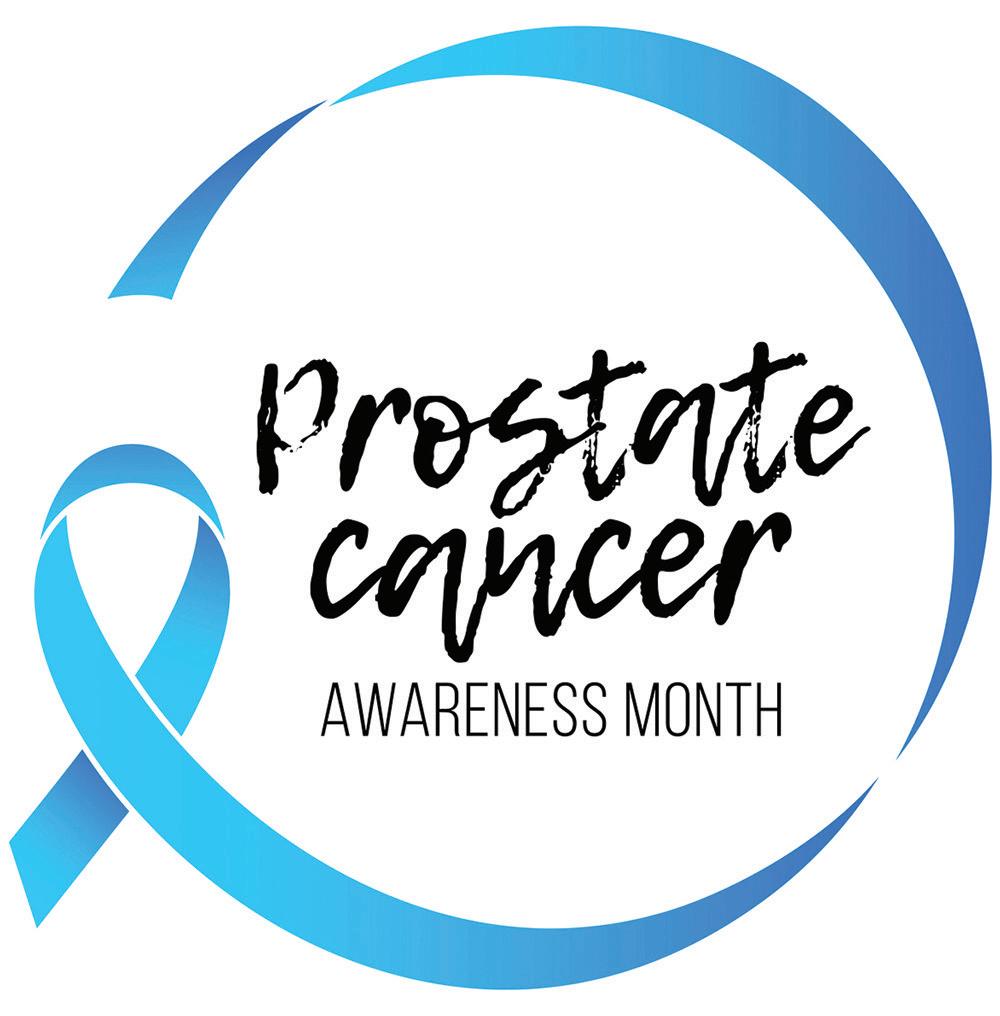
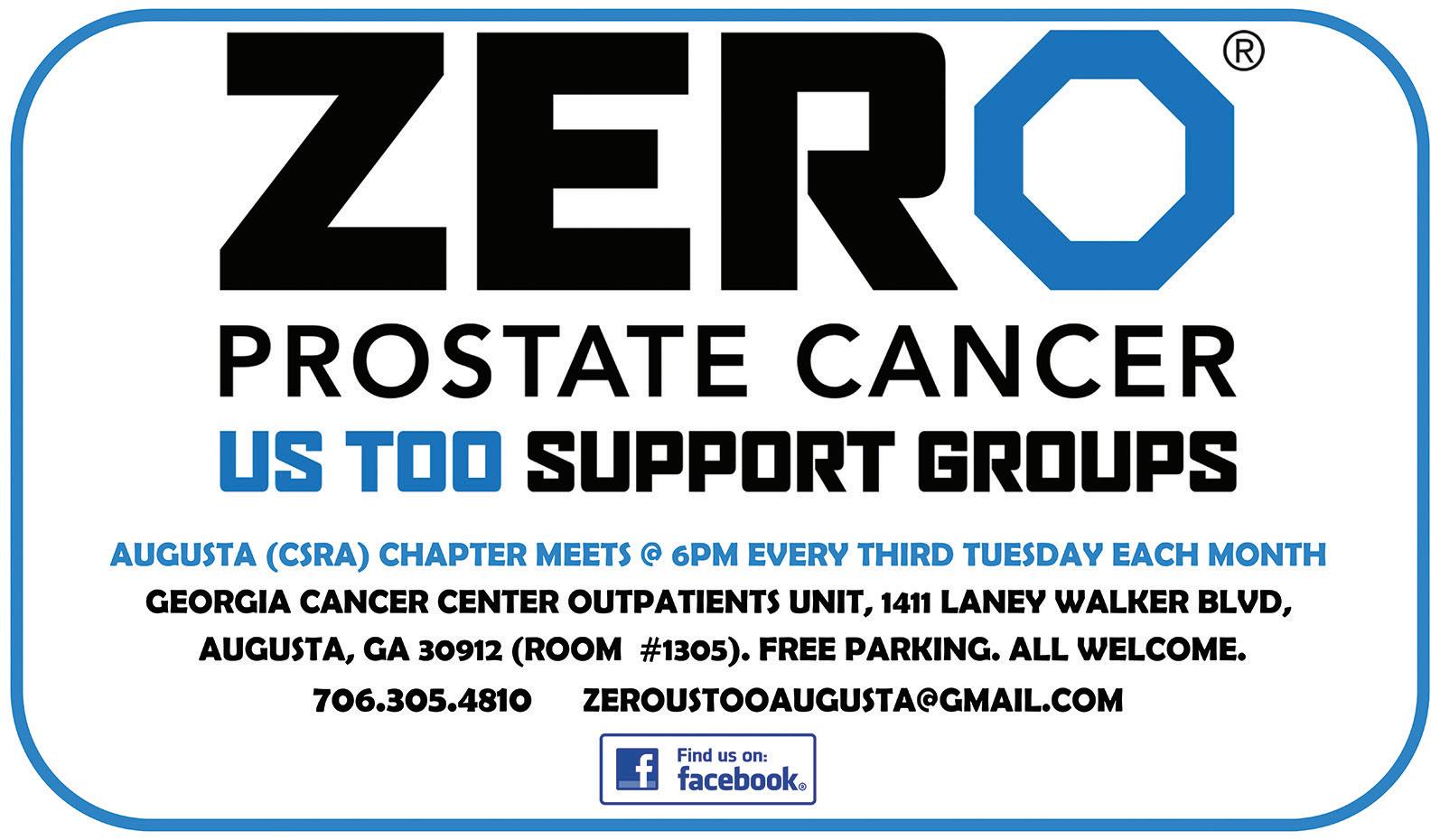 — Oliver Page, Ph.D.
— Oliver Page, Ph.D.
As small as they usually are, polyps get a lot of attention in the healthcare field, and with good reason. Polyps are unnatural clumps of cells growing inside the body. Being abnormal growths, they do get our doctors’ attention.
Their focus on polyps is justified for a couple of reasons: although there are exceptions, people with polyps (which would be a great name for a band) often have no symptoms. That means they can grow undetected and unchecked, which leads to the second reason they are worth finding. Anything abnormal carries some risk, whether small or great, of growing from something of little or no concern into something of serious concern.
As mentioned, most polyps are small, half an inch wide or less, and they may look like just an innocent little bump, or they can be sort of mushroom-like in appearance, where the bump is at the end of a small stalk.
Polyps can pop up in numerous places. Most common are colon polyps, but cervical and uterine polyps aren’t rare. Other sites that are fairly common include nasal passages, the stomach, bladder, and even vocal cords.
Most polyps, abnormal though they may be, are benign, meaning they are not likely to become malignant or cancerous. But much of their risk depends on where they are found and their size. Size is a factor because larger size means the polyp has been around longer. That matters because over time benign polyps can become cancerous.
The lack of symptoms for the most common polyps, those in the colon, is the reason why doctors recommend regular colonoscopies and pelvic exams. That is especially important for people who are over age 50, are overweight, who smoke, have type 2 diabetes, and have a history of colon polyps or cancer, inflammatory bowel disease, or Crohn’s disease.
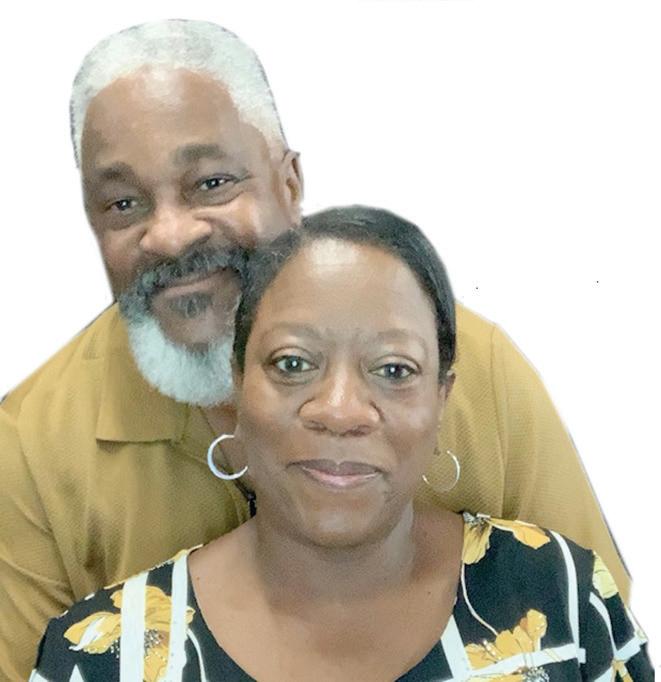

On the other hand, bloody stool or bleeding between periods or even after menopause are indications that a checkup should be scheduled soon.
Colon polyps can be prevented, or at least their risk minimized, by maintaining a healthy weight and consuming a diet with abundant fruits, vegetables, and fiber-rich foods, that is short on red meat and processed meats.
The general principles of graphic design and layout say that a person in a photo should never be looking off the page; it leads the reader’s eye there too, where they might see some attractive diversion and stop reading. We broke that rule above, as you can plainly see. Why?
This photo may be unfamiliar to some, but many of us saw it thousands of times over almost a decade, and it was always published as above, facing left. So we’re leaving it as is.
The image may be familiar, but what about the name behind it? This is Karen Ann Quinlan, you may recall, and her story parallels in a number of ways the sad case of Terri Schiavo, which was installment #195 in this series two weeks ago.

In April of 1975, just a few weeks after Karen Ann had moved into her fi rst apartment at age 21, she attended a birthday party for a friend at a local bar. There she apparently drank several gin and tonics (and took a Valium) despite the fact that she was on a radical diet and had eaten “almost nothing” for two days. Feeling understandably ill and faint, friends took her home and helped her into bed. When they checked on her just 15 minutes later, she wasn’t breathing.
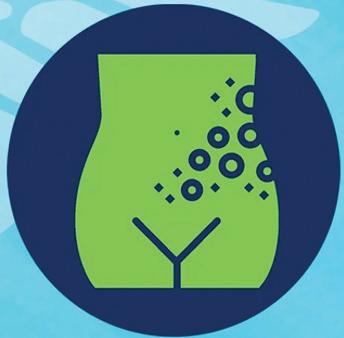

And so began another protracted legal case that attracted worldwide attention and resulted in a landmark legal ruling.



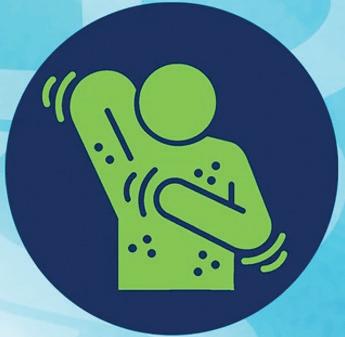
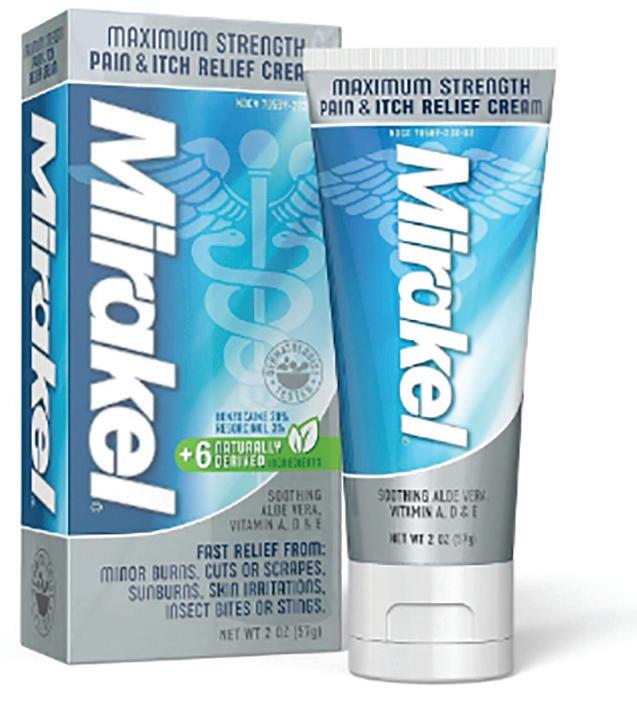

In Terri Schiavo’s case, her parents fought for the right to keep their daughter alive against a mountain of medical evidence testifying to the hopelessness of her situation. The Quinlan case was in many ways just the opposite: Karen Ann’s parents had to fi ght for the right to disconnect their daughter from arti ficial means of life support. Faced with clear evidence of irreversible brain damage and the visible proof from their daily visits that Karen Ann was in a persistent vegetative state, they requested that she be disconnected from her ventilator. Hospital of ficials, in turn, were warned by the Morris County (NJ) prosecutor that they would be charged with murder if disconnecting the ventilator resulted in Ms. Quinlan’s death.
The Quinlans took the matter to court. Karen Ann’s court appointed guardian repeated the contention that removing her ventilator would amount to homicide, and the Superior Court agreed. The Quinlans appealed to the New Jersey Supreme Court, which ruled unanimously in their favor, holding that patient’s rights supersede the state’s interest in preserving life in cases where medical authorities saw “no reasonable possibility” of recovery. They also reasoned that in such a case, any resulting death ”would not be homicide, but rather expiration from existing natural causes.”
T hat alone made the case a landmark ruling (and seemingly should have prevented the protracted Schiavo case 15 years later), but to everyone’s surprise, the now legal separation of Karen Ann from the respirator did not result in her death. Still connected to a nasogastric feeding tube, Karen Ann Quinlan lived another nine years (until June 1985) without ever regaining the consciousness she lost at that long-ago party. Her mother wrote later that she grieved for her daughter every day for ten years, “and then I had to grieve all over again” upon her death.
The case gave birth to hospital ethics committees, the need for living wills, and in 1980, the Karen Ann Quinlan Hospice +
The college football season is upon us once again. Indeed, as I am writing this, the first game will be played in just a few hours in what they call Week Zero. I have used football as a metaphor for life before, and with the rapid and recent changes in the game, it seems a better analogy than ever. One of the most irritating things, of many, that I heard during the pandemic was that we “all are in the same boat.” I am sure it was meant well, but it was most certainly the farthest from the truth one could be before escaping our universe, if that is even possible. I heard someone else say that the better way to look at it was that we were in the same ocean, but in different watercraft. Some were in luxury liners, while others were struggling to keep their worn out and leaky rafts afloat and of course, everything in between. This too seems to apply within life in general and I will add that into our mix here, stir it up, and see what we get.
changes to college athletics. With NIL (Name, Image and Likeness), the transfer portal, conference re-alignment, and expansion of the playoffs all happening within just the last couple of seasons, it can be difficult to adjust. More teams will have higher goals than they have ever had. They will be able to bring in better players, and of course, that will cause fan expectations to climb higher. These changes will do more than just give more teams a chance; they will continue to evolve the game to something our grandfathers wouldn’t recognize. Some will give up watching, as has already happened with some sports when long traditions were dropped or rules changes made them unsatisfied with the game, while others relish the changes and adapt. Who is happier?
In college football, there are tiers. There are elite teams, very few in number, that are consistently good for long stretches of time and have the championships and the money and facilities to prove it. Then come the contenders. They do fairly well and win a lot of games, and perhaps even do well financially, but they haven’t broken through into the elite level. Still lower in our tiers are the average teams who do well enough to win 7-10 games per season and manage to reach a bowl game most of the time. After that, you have your perennial cellar-dwellers. They live in the sub .500 world and are just happy to get to play. Every once in a while, they will have a breakout year and make a bowl game, and this is the highlight of their typical decade.
Within all the fan bases at those various levels, the happiness of the fans isn’t commensurate with their winning percentage or their number of championships. The formula seems to be relative to their tier, and it parallels their expectations-to-outcome ratio. If you only expect to win five games but you win six and make a bowl game, you are happy. On the other hand, if you are an elite team and don’t make the playoffs, like Alabama last season, the year was a huge disappointment even though you curb stomped the Big 12 champion in your bowl game. So, an 11-2 season to the fans of the elite teams is a disaster. It’s playoffs or bust. For the Georgia Bulldogs, who have won the last two national championships in a row, it is championship or bust! How does anyone work under that kind of pressure?
College football coaches at the elite level, like Nick Saban, Kirby Smart, Jim Harbaugh, and Dabo Sweeney, must be made of titanium. I could not hold up under that kind of pressure on my job, especially since their jobs are yearround. There is no real off-season anymore.

Another thing happening in college football and in life, is change. We are seeing historic
If we, as fans, directly stake our happiness to our teams reaching their expected goals (or exceeding them), it is a recipe for disappointment. We have to manage our expectations and not only readily adapt to change but embrace it with a big bear hug. You know, the awkward long kind when you wonder when the other person is ever going to let go, and you perhaps wonder when they last showered. Those are the worst. This is true in life as well. We have to seek out satisfaction proactively and find a way to work within the new status quo. That can be difficult, especially for older folks like me who have GOMS (Grumpy Old Man Syndrome), who tend to be the bulwarks against change in the community. This is needed too. Change isn’t always good. There is always a struggle between the well-established old standards and the new ones that keep beating at the door. A healthy balance must be maintained. It is all checks and balances.

Even within this analogy, there is a smaller, more personal application, and it’s the one I am really talking about here. Not only does society change, but our lives change as we age, and we definitely are not all in the same boat. The plan is that we raise our children, see them to somewhere between 18 and 25 years old and then they go start their lives and possibly their families. Then we get our empty-nest time and can indulge some of our hobbies, travel, and other interests more since the budget is more favorable under those circumstances. Eventually we retire, hopefully in good financial shape, and then we have even more time for ourselves. This happens for some people, but not everyone.
Our parents may need help and may even need to move in with us. This can be a big strain on so many different levels, but we do it out of love, and we adapt and change our expectations. For some, the children may have issues or medical conditions that require lifelong care. We adapt and change our expectations for life. We may lose our spouse in death, and suddenly all of the plans we put off until
retirement now seem like wasted opportunities, but we have to adapt and change our expectations. Still others, more now than ever, are raising their grandchildren and so their dreams are put off even longer, but they adapt and change their expectations. Sometimes all of these things and more can be true at once and we have to adapt and… you guessed it, change our expectations.
Notice that I didn’t write “reduce” or “lower” our expectations in these examples. At first I actually did, but then I thought of it a different way. Here is an example: Suppose you planned a trip to avoid a slow road so you would get to your destination more quickly. Then shortly after you leave, your phone tells you that your planned route is closed, and it reroutes you right through that slower road. You could alternately lower your expectations, or you could change them. Perhaps the slower route is more scenic. Maybe it has some places or things along the way that will endow you with a great life-long memory, like a nice little local restaurant in a quaint or scenic spot that makes the best pecan pie you’ve ever had (Don’t tell your mother that though), or a view of a breathtaking mountain vista you’ve never seen before. These alternate routes on the road — and in life — can carry pleasant surprises if we are looking for them and if we manage our expectations. We will be happier if we do, both in football and in life in general.
So don’t let changes or unrealistic expectations impact your mental well-being. Be like Vanderbilt. They stay in the SEC (Southeastern Conference) basement, but their fans are used to it. They also are in a great town (Nashville) and have the highest academic record in all of the SEC, so there is almost always a silver-lining to everything. That is 100% true roughly 80% of the time. I guarantee it. You can trust me. I’m a writer.
J.B. Collum is a local novelist, humorist and columnist who wants to be Mark Twain when he grows up. He may be reached at johnbcollum@gmail.co


Many things make me laugh. Sometimes humorously. Sometimes sarcastically. Sarcastic humor takes more effort. First you must analyze the direct humor, then contrast the underlying twist. These put lines on my face. See if you can tell which of the following generate humor versus generating sarcasm.
TV ads that say, “Buy one. Get a second one free. Just pay a separate fee.” When you buy a new car, you can get a second one … for a separate fee. Or a third. Or a fourth.
Don Knotts’ Barney Fife character on Andy Griffith. He is a genius giggle machine. Timeless tickler.
Anything Jack Elam says. He is the best ugly entertainer ever. Even when he was a bad guy, he was funny. You never knew where where will his wayward eye would wander next.
(most of the time)
A series by Bad Billy Laveau
Road Runner cartoons. Kids love the action. Me, too. The Road Runner never made me want to kill anyone, regardless of the comedic explosions and dirty tricks.
George Jefferson and Archie Bunker opinions. Neither could get on TV today in our ultra-sensitive, weakling society, but they were funny. I laugh at their antics, and I laugh at how the woke generation would react to Archie and George now.
Any politician who says, “If elected, I will …” No one should make promises not knowing the details. Obama
promised to close Guantanamo Bay prison in 6 months. He found that ill-advised, and evil as it was, we needed it at the time. Trump said he would close the border. He could not, even though he tried with some success. Biden says “the border is closed,” but clearly that is a joke, too. None of them intentionally lied or failed. It is better to laugh at them than to indignantly cry.
Internet ads that promise profits using Artificial Intelligence or “AI.” 6 months ago, no one advertised AI. Now everyone is an AI expert. One ad claimed you could make $5,000 a day. If they could do that, why would they sell the secret for a few hundred dollars? Makes me laugh out loud while shaking my head.
Political proclamations full of negatives about the opponent. All candidates have some dark shadows trailing about. As Brother Dave
Gardner famously said, “Tell me something you believe in, I got enough doubts of my own.” Tell me something good about the candidate you want me to vote for. Facts, not flaws, is what I want.
TV preachers who wear better clothes, drive better cars, and make more money than their congregation. Sarcastic laughs count as a laugh.
Standup comedians living off one-liners. They humorously contort the English language. Just the thought of George Carlin or Rodney Dangerfield make me grin. And can anyone resist Hee Haw? Old songs? Old jokes? And pretty girls? Ok, Lulu was certainly no runway model, but she was funny big time.
TV news/talk shows slanted right or left. They are too predictable and therefore meaningless. It would not surprise me if one of them proclaimed Lincoln was in the wrong by failing to yield right-of-way to John Wilkes Booth’s bullet.
Politicians jumping out in front of any passing parade, hoping followers will see them as leaders. There are too many examples to list here. You can’t take them seriously, because you don’t know what the next poll will tell them to say or do.
Bar room fights in old western movies and no one loses his hat. Or gets their hair mess up. Good guys wear white hats. Bad guys, black hats. They always break tables and mirrors. No one gets a nose bleed.
Anyone saying he (or she) can personally manage immigration. It started when Columbus arrived. How much can we manage is the question.
Fat women gobbling down a double cheeseburger, biggie fries … and then sipping a Diet Sprite “because she is on a strict diet.”
The fat man who proclaim
with pride he are going to cut back on over-eating … as soon as he gets around to it. Most likely he will get rounder and rounder. And why should he cut back? His expanding waistline is a testament to his wife’s culinary skills.
Young men thinking they “married down” when the truth is most men married up by a long shot. I am one of those and am proud of it. Why she puts up with me is beyond me. But I do brag on her regularly, and rightly so.
Reels on the internet of little children in mischievous activities. They are so cute and make me giggle. Of course, I don’t have to clean up behind them. Mamas do that.
Pint-size cars with loud mufflers are a silly way to attenpt to impress girls. That won’t score many points.
Dumb stunts by white dudes when “alcohol might have been involved.” Rope swings that fail. 4-wheeler disasters. Swimming pool pranks. Backyard frolics. (I say white dudes because I never see reels of minorities doing really stupid things. Maybe they are smarter … or camera shy?)
When you experience something of uncertain humor, maybe even a little sad, select funny. It doesn’t cost much. And it is a lot more fun.
Laughter is the best medicine we frequently hear. It might be true. Happy people seem to live longer. Some studies support that. So far no one has laughed himself to death. Lawyers never handle a divorce predicated upon someone being overly happy or laughing excessively.
Take a break and smile awhile. It won’t hurt you. Crank up new smile lines among your frown wrinkles. You might see a TV ad for some weird makeup cream. Wrinkles-B-Gone might work.



This is a great, simple onedish wonder!
Ingredients
• 1 medium baking potato
• 1/2 cup low-fat cottage cheese
• 1 cup baby spinach
• 1/4 cup marinara sauce
• 1 tablespoon mozzarella cheese
• Italian herb blend (or a sprinkle each of dried oregano and basil)
Directions
Pierce potato several times with a fork and microwave for 4 minutes. Meanwhile, stir together cottage cheese, baby spinach, and marinara sauce. Slice the potato open, stuff with cottage cheese mixture, and sprinkle with cheese and a dash of Italian herb blend. Then microwave 1 minute
more until heated throughout.
Yield: 1 Serving
Nutrition Breakdown: Calories 280, Fat 3.5g (2g saturated fat), Sodium 770mg, Carbo-

hydrate 50g, Fiber 6g, Protein 20g.
Recipe provided courtesy of the South East Dairy Association
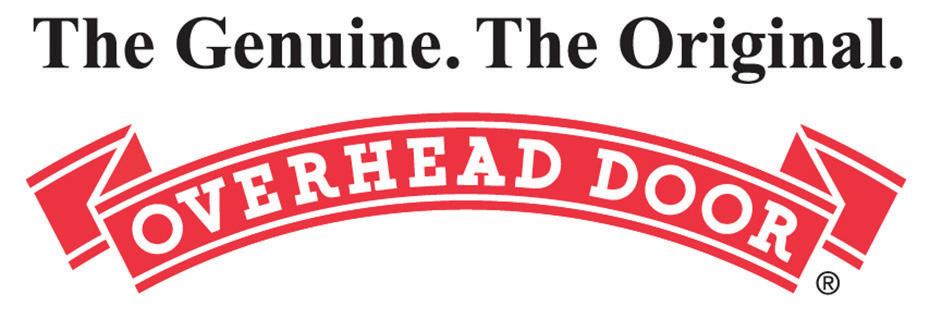
Courtesy Shuttle Financing Options 24-Hr Towing Available 24-Hr Key Drop-Off Rental Cars Available

We are a family-run shop here to put you first with quality work backed up by our 3-year/36,000 mile repair warranty.
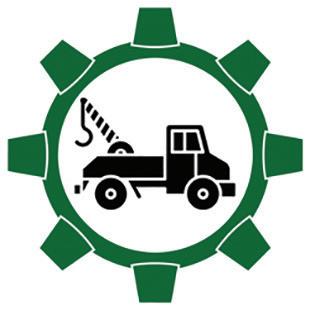






Stan, a Facebook friend from Augusta, asks:
“Is there any science behind the fruit and veggie pills that are being constantly advertised on TV?
The people in the ads swear by them. Should I be taking them?”
The poet Elizabeth Barrett Browning once wrote, “How do I love thee? Let me count the ways.” Why does nutrition science have so many issues with supplement pills? Let me count the ways.
I guess the most fundamental question about all these types of pills is whether a fruit or veggie pill can substitute for fruits and vegetables in your diet. The answer is emphatically, no. There is no comparison between eating fruits and vegetables and taking a pill. For one thing, when you eat fruits and veggies, you chew and swallow. Both chewing and swallowing play very important roles in your satiety reflex, that is, whether you feel full. When you do not chew and swallow, it is much harder for your body to control your appetite. Most fruits and vegetables also have a great deal of fiber, sometimes, called bulk. Intestinal bulk is also another important satiety signal.
Dietary fiber has many other benefits. Soluble fiber has beneficial effects on blood cholesterol and blood sugar. For example, fiber helps level out the absorption of carbohydrates in your diet, helping you avoid blood “sugar spikes.” Fiber is also important in lowering your risk from GI cancer. Fruits and veggies increase the flow of food through your gut, important in having regular, normal bowel movements. Do you get any of these effects by taking a pill? Not one.
Fruit and veggie pills are classified as dietary supplements. Remember that dietary supplements are not regulated by either the FDA or the USDA. Be aware that since these pills are not regulated by these medical and scientific organizations, the pills may not contain what they are purported to contain. That is why from time to time you see warnings published about contaminants in dietary supplements.
Dietary supplements are a separate group of substances that are classified as neither foods nor drugs. They are required by law to always have this warning label on them: “These statements have not
been evaluated by the Food and Drug Administration. This product is not intended to diagnose, treat, cure, or prevent any disease.” What does that mean to you? And why do think supplement makers take great pains to place this warning as small and as inconspicuously as possible on the product and in the ads for the product? It is disheartening to see how gullible some people can be, especially as the ads and commercials get slicker and slicker. The only tool we have to combat these ads is education. It is up to YOU to get smarter and more sophisticated about understanding science-based and evidenced-based diet and nutrition.
Very prominent in almost all the different fruit and veggie pill commercials is the idea that they give the people taking them more energy. The truth is the little pills contain no energy. Energy, in nutrition science, is defined as calories. These pills have no or very minimal calories, and cannot give you energy. Period. By the way, have you ever noticed how these diet fads just keep coming back, year-afteryear, in one form or another? Whether they are juice supplements one year, drinking grapefruit extract the next, then veggie/fruit pills the next, it is basically the same ruse. I assure you, in ten years the fruit/veggie pills will be back, in a slightly altered format. People “swearing by” anything is not science or evidence. Testimonial “evidence” is basically gossip. Sometimes gossip is important
publications touted in some ads? People tell me all the time, “Dr. Karp, this product has been studied and the results showing effectiveness have been published.” Unfortunately, supplement pushers sometimes create their own “journals” and newsletters with the sole purpose of promoting the product. These very real-looking journals and newsletters are not scientific, not peer-reviewed, and they are not unbiased.
because it allows you to find out the buzz about a product. What do people believe or feel about these pills? Whatever it may be, testimonials do not give you scientific evidence for logical decision-making about the biological effects of the pills. Testimonial evidence is considered the lowest and weakest type of data.
One type of high-quality data that nutrition scientists use to assess supplements is case-controlled, double-blind studies. This is when some people are given the study pills while others are given fake pills that look, taste, feel and smell the same as the study pills. The file showing which subjects took which pills is hidden until the study is completed. That means that both the subject and the scientist are blinded to the study; it is a double-blind study. You can see the contrast with the testimonial approach, where people often know what they are taking and are paid to represent the product and have a vested interest in its success. They are biased, for sure.
What about the scientific
Sometimes, however, you do find data on a supplement published in credible publications. One, two or three published studies do not a conclusion make. What nutrition scientists look for in evaluating a substance is whether there is a preponderance of data and a consensus on the data by independent research groups and scientific advisory committees, not a few studies here and there. Presently, there are no longterm, large scale, controlled studies of these pills. The few studies that are published have small sample sizes and do not allow you to reach significant conclusions.
What’s the “No-Nonsense Nutrition” advice for today?
Swallowing fruit and veggie pills is not equivalent to eating fruits and vegetables. They do not fill you up, they do not give you energy, they do not even out your blood sugar, they do not decrease your risk of GI cancer. They are unproven dietary supplements that do not treat, cure, or prevent any disease. Taking fruit/veggie pills is truly “a hard pill to swallow.”


Have a question about food, diet or nutrition? Post or private message your question on Facebook (www.Facebook.com/ AskDrKarp) or email your question to askdrkarp@gmail.com If your question is chosen for a column, your name will be changed to insure your privacy. Warren B. Karp, Ph.D., D.M.D., is Professor Emeritus at Augusta University. He has served as Director of the Nutrition Consult Service at the Dental College of Georgia and is past Vice Chair of the Columbia County Board of Health. You can fi nd out more about Dr. Karp and the download site for the public domain eBook, Nutrition for Smarties, at www.wbkarp.com Dr. Karp obtains no funding for writing his columns, articles, or books, and has no fi nancial or other interests in any food, book, nutrition product or company. His interest is only in providing freely available, evidenced-based, scienti fic nutrition knowledge and education. The information is for educational use only; it is not meant to be used to diagnose, manage or treat any patient or client. Although Dr. Karp is a Professor Emeritus at Augusta University, the views and opinions expressed here are his and his alone and do not reflect the views and opinions of Augusta University or anyone else.
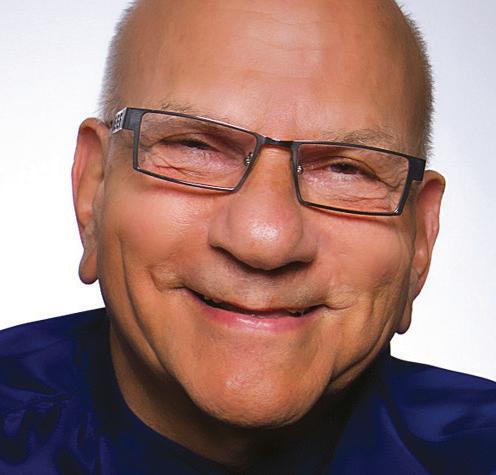 Dr. Karp
Dr. Karp
With all the buzz in the break room from co-workers chatting about various vitamin and mineral supplements that they take daily, it can be challenging to know if you should be doing the same. Are they safe? How much do they cost? Do they work? The first question you should be asking yourself is whether you need them in the first place.
About 50% of American adults take at least one dietary supplement daily. Supplements are purchased over the counter without a prescription, and can be in pill, powder, or liquid form.
Vitamins (such as B vitamins, vitamin D, and choline) and minerals (such as iron, calcium, and magnesium) are considered micronutrients that are needed in small doses for good health. The good news is that most people meet their RDI (Recommended Dietary Intake) of a nutrient by diet alone.
Supplements aren’t meant to replace these micronutrients, but rather help fill the gaps in your diet. But Sallie, you ask, how do I know if I have gaps to fill? Let’s find out if you meet any of the categories below. There are
only a few good reasons why you may need to hit up your local pharmacy to spend money on supplements.
Over the age of 65:

As discussed above, vitamin D deficiency is more common than you may think. It is especially common in people over age 65.
Pregnant, planning to become pregnant, or breastfeeding:
KINDNESS AND PATIENCE SOMETIMES WORK WONDERS
I was working a 12 hour shift as a float nurse in a hospital. When I got my patient list at the start of the shift, everyone warned me about a certain woman. During report, one nurse said she had almost given the lady the “pillow treatment“ because she was so demanding. And I had this lady assigned to me.
Just as advertised, she was demanding and not satisfied with anything anyone did for her. But instead of taking my break with the staff as usual, I went to her room and told her that she had me all to herself for 20 minutes. She was gruff at fi rst and then it came out that she was terri fied of the biopsy results she was awaiting from minor surgery to have a lump tested. Her friends were older, didn’t drive and were unable to visit. She didn’t know how she was going to manage at home if she had cancer.

Nutrient Deficient:
If you are deficient in any nutrient, then you absolutely should supplement in a dosage recommended by your health provider. The 3 most common nutrient deficiencies are iron, calcium, and vitamin D. The best way to check your levels is through a blood test with your primary care physician. Some major signs of nutrient deficiencies are fatigue, hair loss, and weakness.

It is estimated that about a third of American adults are deficient in the “sunshine vitamin” (vitamin D) and should consider supplementing, especially in the fall and winter months.
Vegetarian/Vegan:
You should consider supplementing with vitamin B12 and iron if eggs, meat, fish, and dairy are not part of your daily diet, since it is a bit more challenging to meet your RDI when eliminating those products.

Nutrition for one is important, so it is even more important when growing another human. Folic acid and iron, just to name a few, are essential in higher doses.
Chronic Disease:
Your specialized healthcare team will know the best recommendations for your condition as some require supplementation.
Keep in mind that too much of a good thing can be a bad thing. Taking too large amounts of vitamins and minerals can be risky and toxic. Stick to food sources first, then supplements later unless you are considered in one or more of the above special populations. Supplements are never a substitute for lean protein, colorful fruits and vegetables, unsaturated fats, and whole grains. Always work with a Registered Dietitian or Physician to find the best recipe for health in your life
I empathized with her and we discussed how scary this was. We held hands and were silent for a while. She had a complete turnaround in attitude after that and I checked on her often. She was not demanding anymore. When my shift was over, I let her know I was leaving. She went to the desk when I was back charting and asked for my phone number. I was told that she wanted to invite me to her place for tea after being released. I gave her the information and the staff were amazed. One nurse asked what I did to get her to be human? I told her I just fi gured there had to be some reason for her behavior, so I took the time to listen and found out she was scared. Some time later I did visit her for tea and found out the lump was benign. Sometimes uncertainty and fear of the unknown makes people do negative things. She was a lovely lady. I’m very glad that I took the time to listen.

More Americans have died on US roads since 2006 than in World Wars I & II combined
Have you ever thought about how important maintenance is to highway safety?
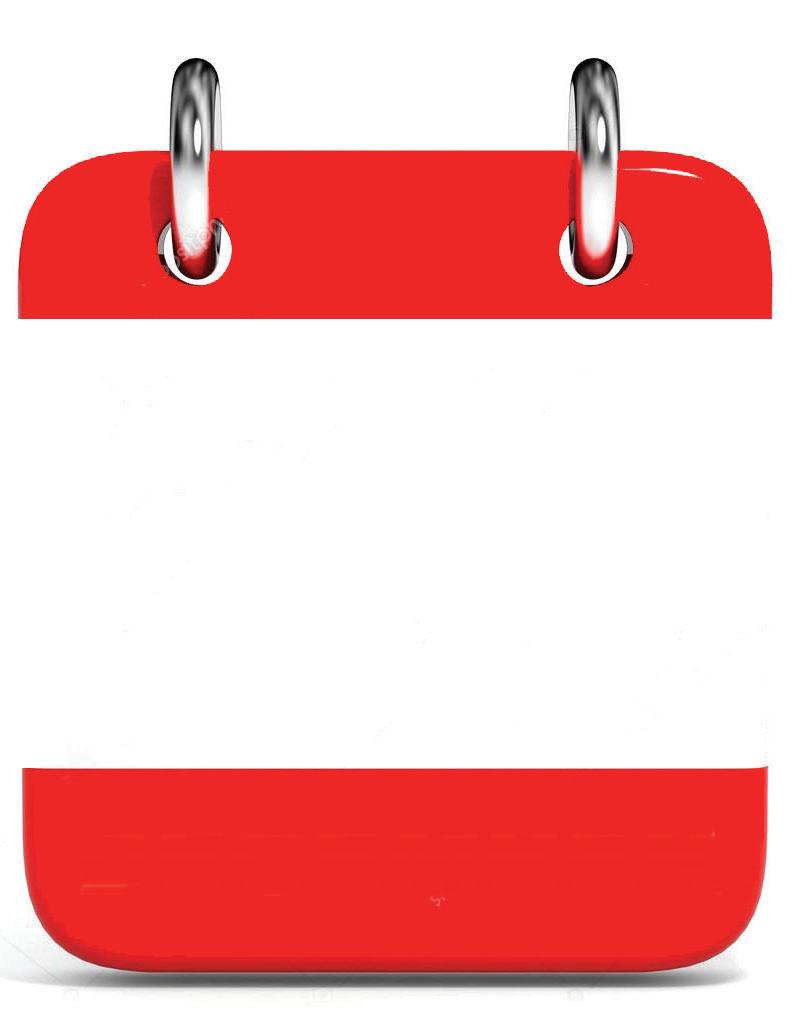


Don’t let the word “wrench” scare you away with thoughts of expensive repairs. Yes, there are sometimes large sums of money to be paid to mechanics, and with good reason. But let’s put aside those thoughts for the moment and concentrate on free and low-cost maintenance.
Yes, we said free maintenance. Despite being free, this is maintenance that could save lives, which makes it very, very valuable indeed.
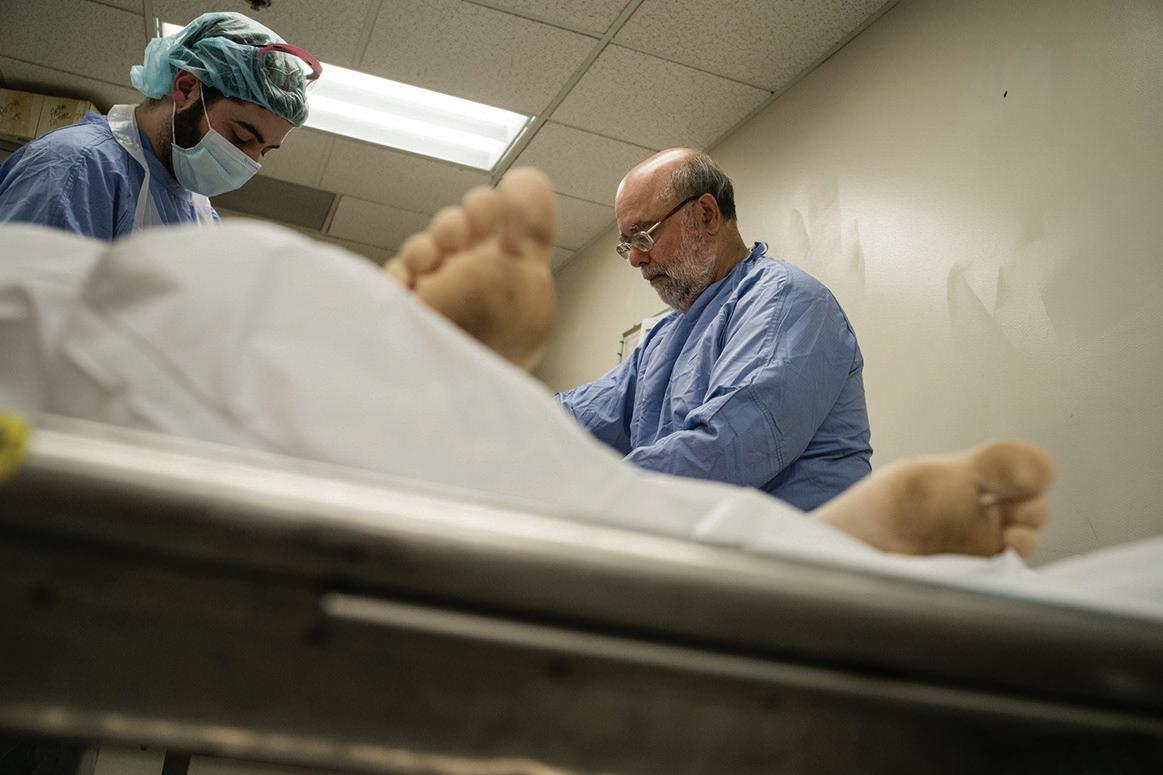
Imagine you’re on your way to work in the early morning hours. There is an immediate problem that could cost lives. But its solution is quick and easy and free. You’re heading east, directly into the rising sun. If you had not used a little Windex the day before, your view of the road ahead would have been completely obscured and you might have hit the semi that pulled out in front of you. A potentially serious problem was prevented. It cost you nothing out of pocket and only 5 minutes of your time.
Similarly, there are times when people have been in deadly collisions because their floorboard was so full of drink cans and bottles, sand, fast food wrappers and other assorted trash that their foot slipped or they couldn’t depress the brake pedal.
Keeping cars clean saves lives. And it’s inexpensive and a half to make it happen.
Of course, not every car maintenance issue is free or low-cost. Some are fairly expensive. But look at the big picture.
Let’s say you need new tires or a complete brake job. Or both. Significant money will be involved. More than you feel like you can afford.
As a result you postpone the needed maintenance. Maybe you’ll make a score on the lottery. Nothing huge. Just $50,000 would take care of everything with plenty left over.
Come on. Let’s get real.
And we really mean real. Realistically, you’re not going to win a dime in the lottery. And realistically, your bald tires and bad brakes probably will not result in a crash.
But also realistically, which one, however unlikely they both are, stands the better chance of happening?


Unfortunately, the answer is the crash.
And if the crash occurs, the price of new tires or the cost of new brakes — or even both — will seem like a tremendous bargain compared to the
cost of the two seconds during which the crash occurred.
There could be major body shop fees, and they might include both your car and other(s), especially since the mechanical condition of your car is most likely a contributing factor in the collision.

And because of that, there may be a lawsuit. You or your insurance company will have to hire a lawyer to defend you. Insurance companies don’t like to have to do things like that, and as a result they may drop you as a policy- holder or dramatically raise your premiums. And they won’t be coming back down for years, even if you wind up with coverage from another insurance company. There could be a judgment against you in court for major amounts of money.
In addition, what if you’re out of work for weeks, maybe even months? How will your family pay its bills and survive?
Even worse, what if the accident resulted in legal charges? What if you ended up in jail? There might be no job to return to afterward. No house. Maybe no family.
And to think, all of it — the thousands of dollars in lost wages, the legal fees, the jail time, the medical bills for you and the people in the other car, the increased insurance premiums, the lost job, the family stress, possibly even divorce — all of it could have been avoided for a few hundred dollars of preventive maintenance.
We were trying to be realistic before, so let’s continue. One aspect of the preceding scenario is that it probably won’t happen.
But it certainly isn’t impossible. Bad brakes and/or bad tires definitely increase the odds exponentially. So then, what if it does happen? Because it very well might. And like most road incidents, it was preventable.
One final element of being realistic: we don’t always have the money to make expensive repairs. What then?
Can you put it on a credit card? Could a friend or family member loan you the necessary money? Can you temporarily take on a part-time job to pay off the card or pay back your friend or family member?

Never forget that the cost of regular maintenance is much cheaper than waiting until emergency maintenance has to be done, but even that is far less expensive than the cost of a single collision.
Maintenance saves money. And lives.
A WRENCH MIGHT BE THE KEY TO ROAD SAFETY
— posted by Peter Ubel, MD, on December 15, 2019 (edited for space)
One of my elderly relatives was in line at the grocery store one day and saw the person ahead of him charging what looked like an entire cartful of junk food to her food assistance card. My relative was incensed: Why should his hardearned tax dollars be used to pay for someone’s Cheetos?
Currently, one in seven Americans receives some kind of government assistance to pay for food. The largest such program (called SNAP for Supplemental Nutrition Assistance Program) subsidizes a wide range of food purchases. No alcohol or tobacco, mind you, but as many Cheetos, Pepsi Colas, and hot dogs as a person can fit within their budget. Subsidizing such unhealthy foods is politically controversial, raising the question: What would happen if people were only allowed to use SNAP dollars to buy healthy food?
An important study by Stanford and the University of California, San Francisco, set out to answer this question. The study tested two programmatic changes to food assistance.
1. For half the people in the study, their food assistance dollars could be used only to buy fruits and vegetables.
2. For half the people, their assistance money became available in full every month, whereas for the other half, a quarter of their money became available every week.
The ideas for examining monthly versus weekly: People getting a monthly lump sum may spend most of it quickly, then have limited money remaining at the end of the month. This kind of feast-and-famine cycle is bad for people’s health. It can also encourage people to splurge on calorie-dense and unhealthy foods when they finally get their monthly funds to make up for all the calories they’ve gone without at the end of the previous month. Providing weekly funds could promote fruit and vegetable purchases, because those products often have a short shelf life. Or so the researchers thought.

The reality was that nothing changed. Zilch. Nada. Six months into the intervention, fruit and vegetable purchasing was unchanged.
I don’t want to say that food assistance doesn’t do any good. It dramatically reduces people’s food insecurity. Receiving monthly or weekly food assistance is enormously helpful to people. Being able to buy health or unhealthy food with such money is beneficial.



Nevertheless, the changes in the study failed to encourage people to buy healthier food. Why? I have a few ideas.
1. Habits are hard to change. I have a handful of “go-to meals” I can cook without effort or without making a separate trip to the grocery store. People in the study probably stuck with their go-tos, too.
2. Money is fungible. People who receive food assistance typically spend some of their own money on food, too. Force people to spend assistance dollars on fruits and vegetables only and they’ll simply shift which items they purchase with their own money.
3. We might be a bit obsessed with fruits and vegetables. Maybe reducing food insecurity is enough of an accomplishment. No one should worry whether they have enough money to pay for their next meal.
+
Well, we re all set for our Labor Day getaway. This brochure for the Airbnb place looks awesome
Uh oh. Hold up. It sleeps 6 and there are going to be 7 of us. It s perfect.
know.
by
I thought you told me your mother has been having insomnia.
Simply unscramble the letters, then begin exploring our ads When you find the correctly spelled word HIDDEN in one of our ads — enter at AugustaRx.com
We’ll announce the winner in our next issue!
ACROSS
1. Woman who challenged Augusta National male-only membership

5. Not Tesla fuel 8. Georgia county named for the 11th US president 12. Soothing plant 13. One of the Marx brothers 15. Canal name


DIRECTIONS: Every line, vertical and horizontal, and all nine 9-square boxes must each contain the numbers 1 though 9. Solution on page 14.
69. Put down
70. Requirement DOWN
1. Wallop
26. Intestinal bacteria
27. Worries; concerns
29. African plague
30. Medieval fiddle
31. Laziness
34. Wrong; awry
35. It can precede day or night
38. Uncommunicative
40. Gather in
7. Beethoven composed a famous one
8. Minor epileptic attack
10. They can be cyanotic
13.
14. Malt beverage
20. Prefix meaning “within”
22. Augusta ______
43. Westernmost island of the West Indies 45. Clark’s girlfriend 48. Corps at Ft. Gordon 50. Road from Washington Rd. to Furys Ferry 53. ____-and-pinion 54. Continuous dull pain 55. Type of club 56. Talk to God 57. Sen. colleague 58. Exhort 59. Uncommon 60. Blue-____;
DIRECTIONS: Recreate a timeless nugget of wisdom by using the letters in each vertical column to fill the boxes above them. Once any letter is used, cross it out in the lower half of the puzzle. Letters may be used only once. Black squares indicate spaces between words, and words may extend onto a second line.

Solution on page 14.
Use the letters provided at bottom to create words to solve the puzzle above. All the listed letters following #1 are the fi rst letters of the various words; the letters following #2 are the second letters of each word, and so on. Try solving words with letter clues or numbers with minimal choices listed. A sample is shown. Solution on page 14.
to?” came the response. The guy couldn’t help but roll his eyes. “Three guesses, dude!” Then the voice says “You mind if I come over?” Thoroughly annoyed, the guy said, “Sorry pal, but I happen to be a little busy right now!”
Now it was the guy in the next stall who was annoyed. “Hey, I apologize. I’m going to have to call you back. Some idiot next to me keeps answering all my questions.”

Aman happened to be sitting by his wife’s phone when it lit up. She was taking a nap, so he picked up the phone and saw it was a text from his wife’s sister. He started idly scrolling through her texts and saw one about a month old that read, “Hey you beautiful thing, I’m sending you $300. Slip your husband $100 to keep him happy and use the rest to buy something sexy for me.”
The man texted back: “Hello. This is her husband. I never got my money. Please talk to her for me.”
Moe: I saw that Bob Barker died last weekend.
Joe: Are you talking about the guy from The Price is Right?
Moe: That’s the one. He made it to 99.
Joe: Wow. You’ve really got to hand it to him, going right to 99 and not going over.
A guy had just sat down in a public bathroom stall when the man in the adjoining stall said “Hi, how are you?” Not too pleased, the man answered anyway. “Just fine,” he said, a little sarcastically. “So what are you up


Moe: It’s a shame about old Charlie.

Joe: Yeah, I heard that he died too. That was a shock. I just saw him the other day and he seemed fine. Wonder what happened?
Moe: I heard his wife wanted to donate some old clothes to Goodwill and Charlie said they should just toss them in the trash.
Joe: So?
Moe: Well, she didn’t think it was right to just throw them away when so many people are poor and starving.
Joe: What does any of this have to do with Charlie dying?
Moe: The way I heard it, he said, “Honey, anyone your clothing would fit ain’t starving.”

Moe: Ever since I was a little kid I’ve always wanted to have a pet lizard, but it was just never the right time. Then when I got married my wife said absolutely no way there will ever be a lizard in her house. But now that we have a new baby, of all times to change her mind, she finally told me I can have one.
Joe: Really.
Moe: I swear! She told me to go out and buy a baby monitor. I’m so excited.
Staring at my phone all day has certainly had no Effect on ME!
Dear Advice Doctor,
My next door neighbor’s yard is an eyesore like you wouldn’t believe. It’s an absolute disgrace. What makes it even worse is when they misplace something in what looks like a professional junkyard, they accuse my family of stealing it. Then when they find whatever it is, they accuse us of sneaking over to put it back. What a load of baloney, and I have to put up with this at least once a week. What do you think I should I do?
Dear Junkyard,
By popular demand we’re making at-cost subscriptions available for the convenience of our readers. If you live beyond the Aiken-Augusta area, or miss issues between doctor’s appointments — don’t you hate it when that happens? — we’ll command your mail carrier to bring every issue to your house!
Thank you for bringing your issue to this forum where many people can read the answer.

I believe you have raised a question that many people wonder about from time to time: What about baloney? After all, it’s a very common sandwich meat. But is it healthy?
Well, one might say there’s baloney, and then there’s bologna. They could be one and the same in some cases, but to a native of Bologna, Italy (which is most defi nitely not pronounced baloney), there is virtually nothing in common between his cured sausage bologna and the rosy pink sliced circles of baloney sold by guys like Oscar Mayer — even though both meats may be pronounced the same.
The problem with lunch meats in general could fi ll this entire page. They are often high in sodium, a risk factor for high blood pressure, stroke, and heart disease. Some lunch meats are great sources of saturated fat, which means they are bad sources of saturated fat, a contributor to clogged arteries, high cholesterol and heart disease. Many processed meats also have sodium phosphate and/or sodium nitrite added as preservatives. These have been linked to cancer. No wonder the World Health Organization classi fied processed meats as a class 1 carcinogen back in 2015, meaning there is evidence that these kinds of meat can contribute to cancer.
But there are ways to mitigate the risk. Be a label reader, and look for lunch meats that are low in the bad stuff, and which don’t have the offending preservatives. The word “uncured” on packaging is good, since curing meats often involves more salt or more preservatives like sodium phosphate and sodium nitrite. Finally, one of the best ways to enjoy baloney (and bologna) guilt-free is that all-important word: moderation. Having a baloney sandwich once in a while? No harm, no foul.
— Junkyard Adjacent +
Thanks again for writing. I hope I answered your question. Do you have a question for The Advice Doctor about life, love, personal relationships, career, raising children, or any other important topic? Send it to News@AugustaRx.com. Replies will be provided only in the Examiner.
Why read the Medical Examiner: Reason #507

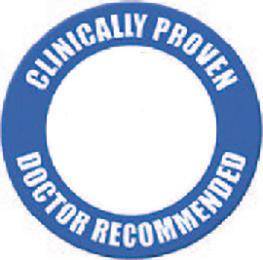



WEST CLEANING

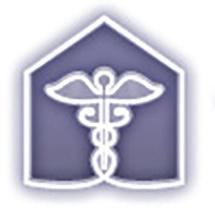
THE WINNER: STEPHANIE HONKE!



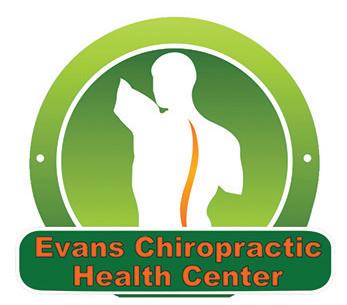
If that’s your name, congratulations! Send us your mailing address using the email address in the box on page 3. The new Mystery Word is on page 12. Start looking!






...wherein we hide (with fiendish cleverness) a simple word. All you have to do is unscramble the word (found on page 12), then find it concealed within one of our ads. Click in to the contest link at www.AugustaRx.com and enter. If we pick you in our random drawing of correct entries, you’ll score our goodie package!
SEVEN SIMPLE RULES: 1. Unscramble and find the designated word hidden within one of the ads in this issue. 2. Visit the Reader Contests page at www.AugustaRx.com. 3. Tell us what you found and where you found it. 4. If you’re right and you’re the one we pick at random, you win. (Winners within the past six months are ineligible.) 5. Prizes awarded to winners may vary from issue to issue. Limited sizes are available for shirt prize. 6. A photo ID may be required to claim some prizes. 7. Other entrants may win a lesser prize at the sole discretion of the publisher. 8. Deadline to enter is shown on page 12.
I DROPPED DEAD Several years ago I went to the doctor to chat about something regarding my mother’s recent death.



The doctor looked at me and said, “How are you doing?”
I told him I hadn’t been feeling that great for a few days. I said I couldn’t seem to settle down, and just generally felt unwell. He listened to my heart and lungs, checked my eyes, the usual.
Then without saying a word he hooked me up to an EKG machine. Huh?
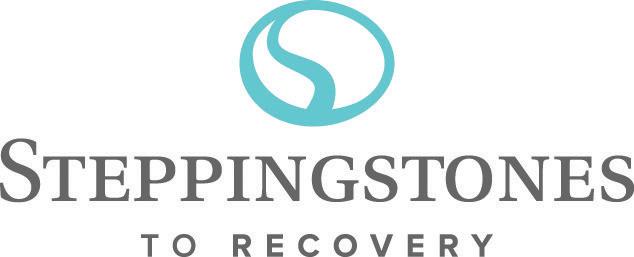

He fi nished, read the printout, and said: “Well, I don’t see anything, but that doesn’t mean you won’t walk out the door and drop dead.”

What in the world is this guy talking about? I’m 37 years old and in good shape with nothing medical going on.
I told my girlfriend what he said as we left.
Sure enough, two weeks later I was going to play softball and dropped dead of a cardiac arrest. All the way from before the doctor appointment up until that day I hadn’t been feeling well. But because of what he said, my telling my girlfriend, and there being nurses at that game, I am here to tell the story.
At that time I was one of the youngest people to ever survive sudden cardiac death. Because of me and others like me around the world, automatic external defibrillators are now in place in most public buildings.



